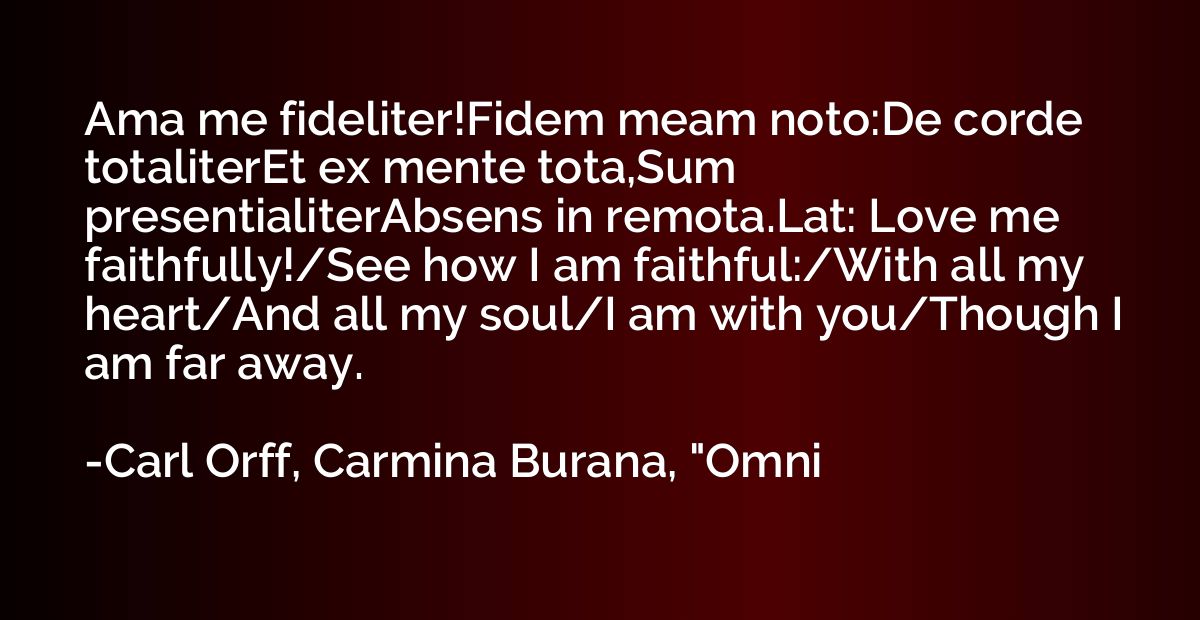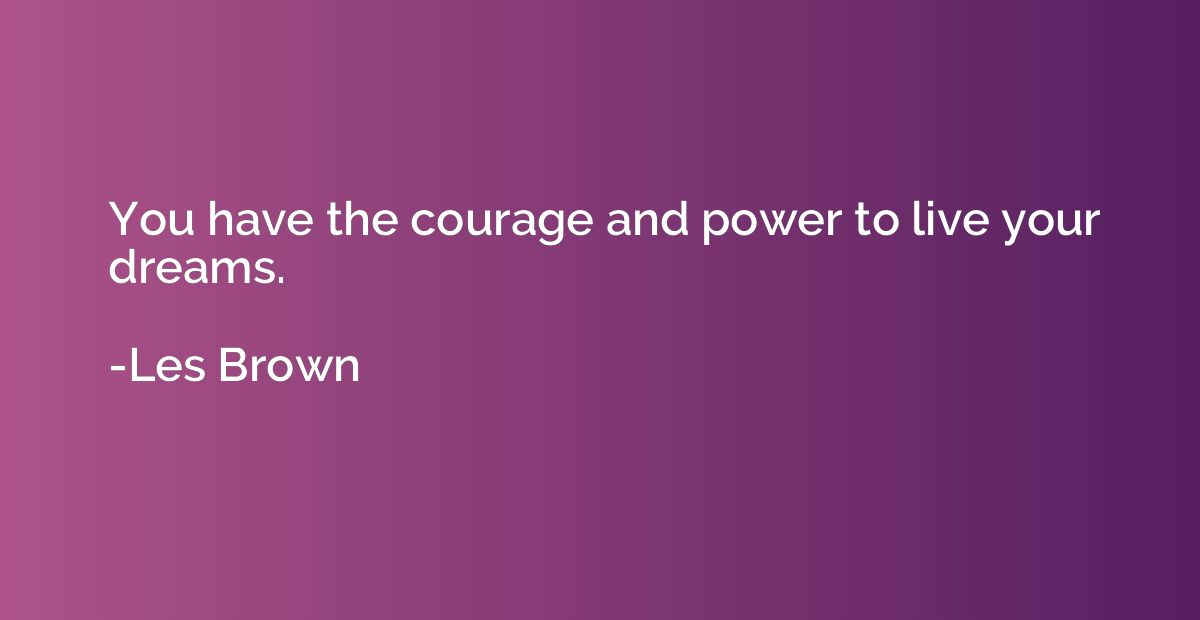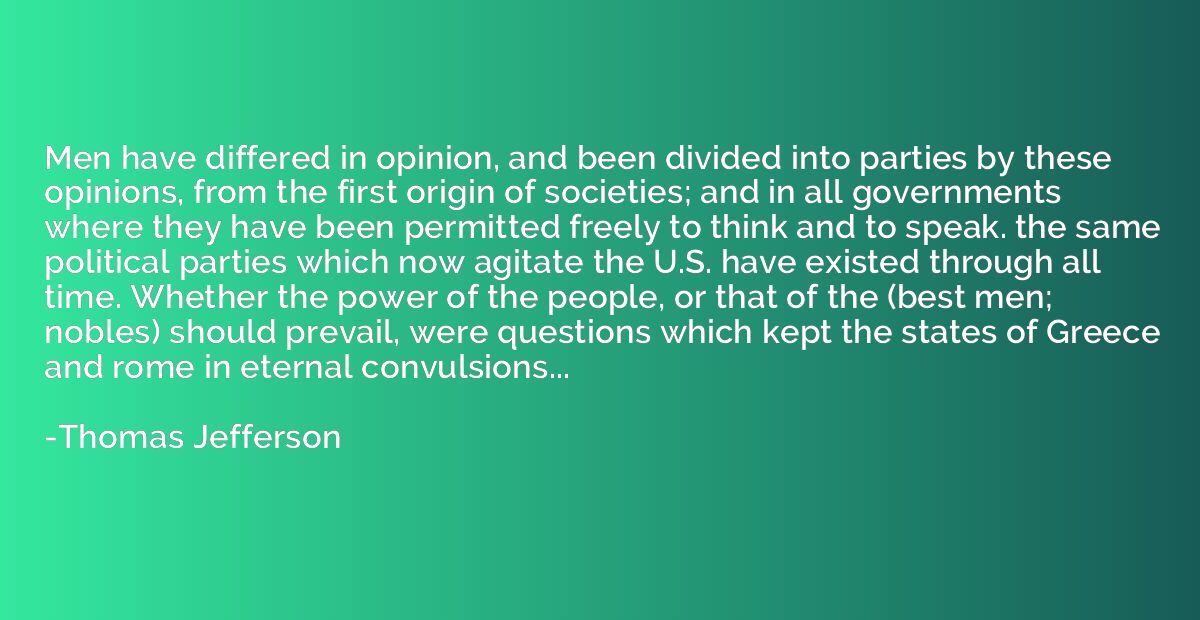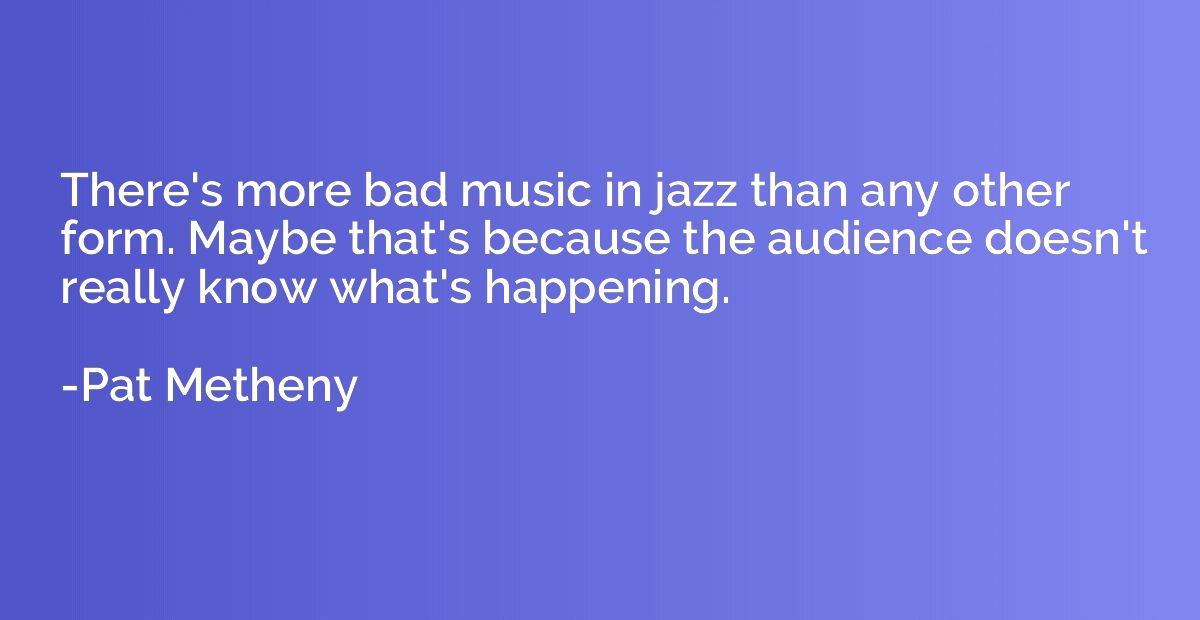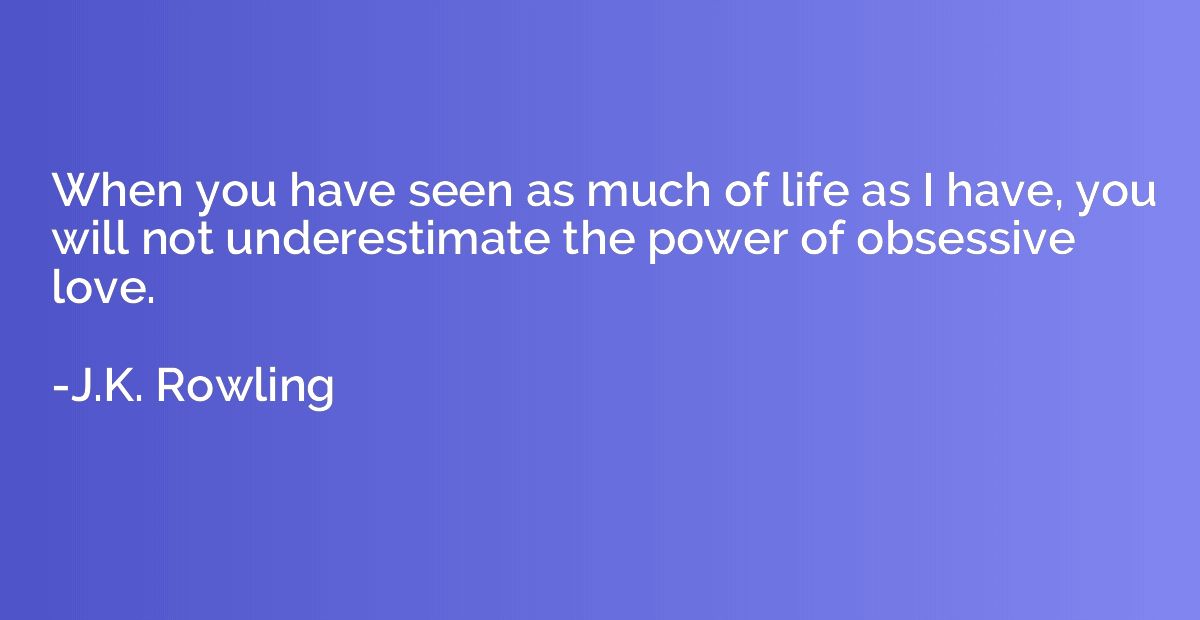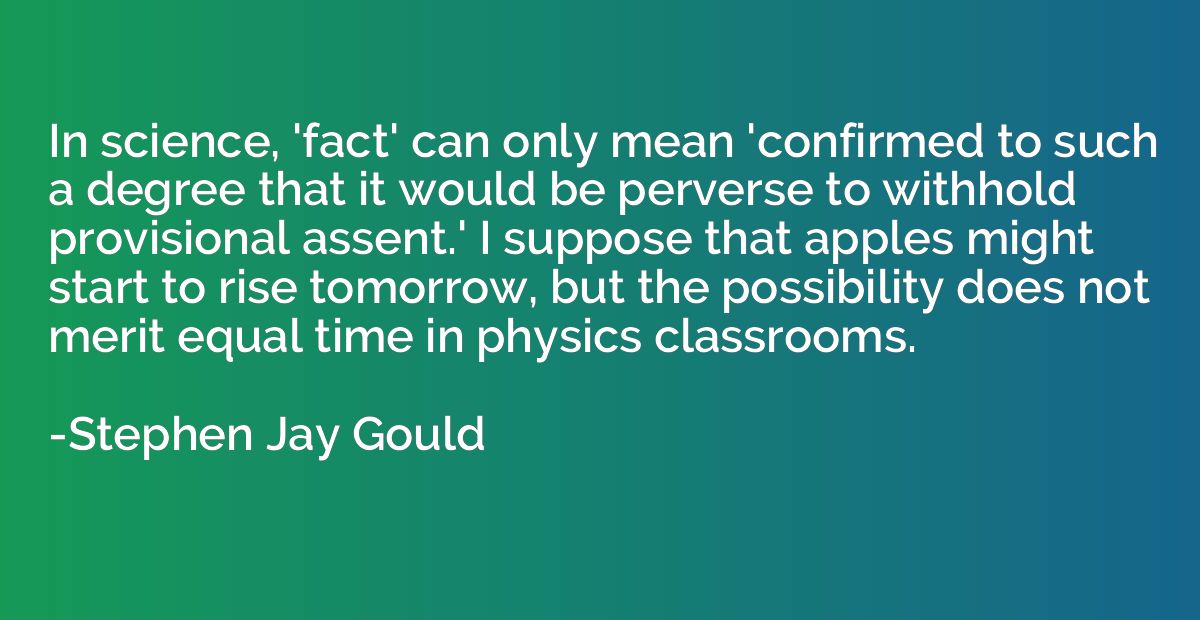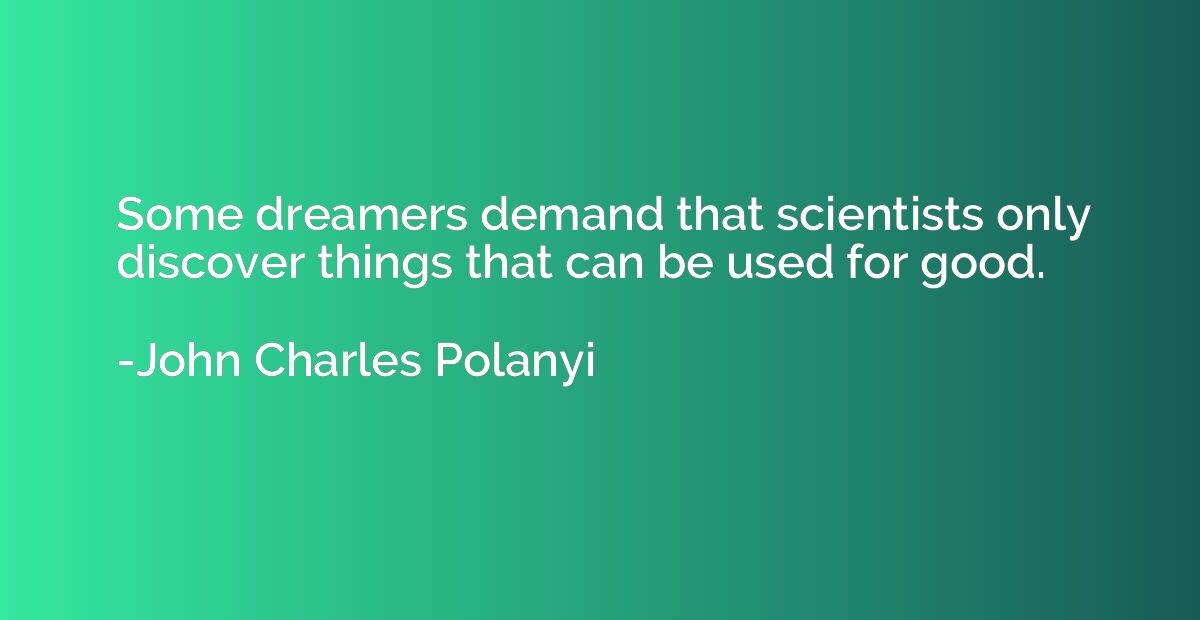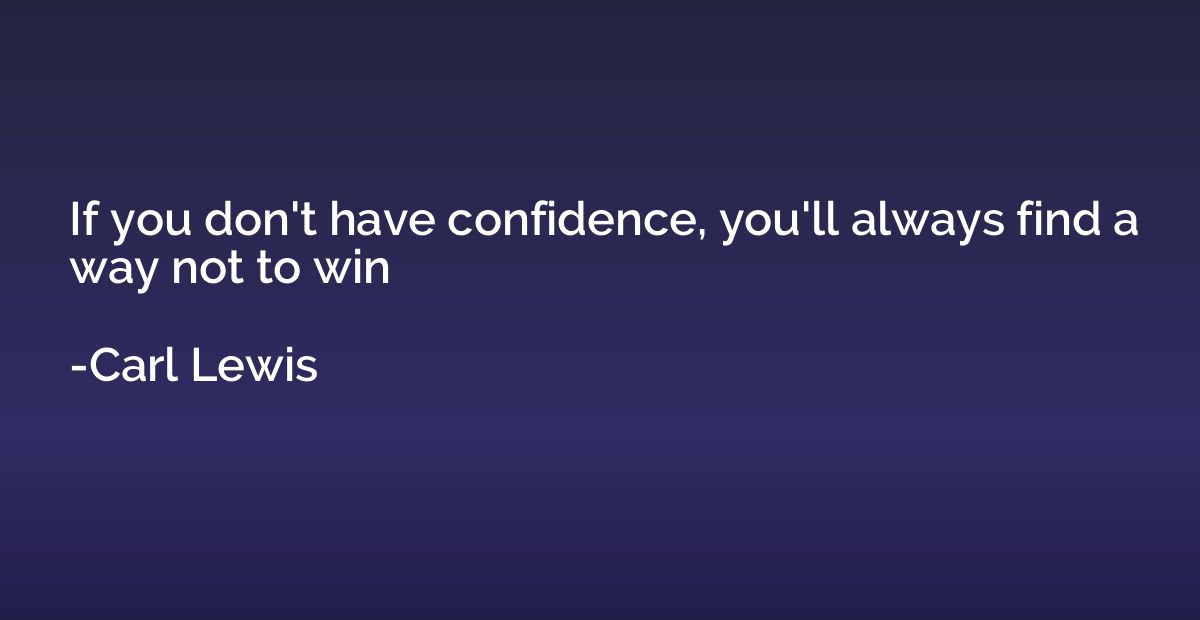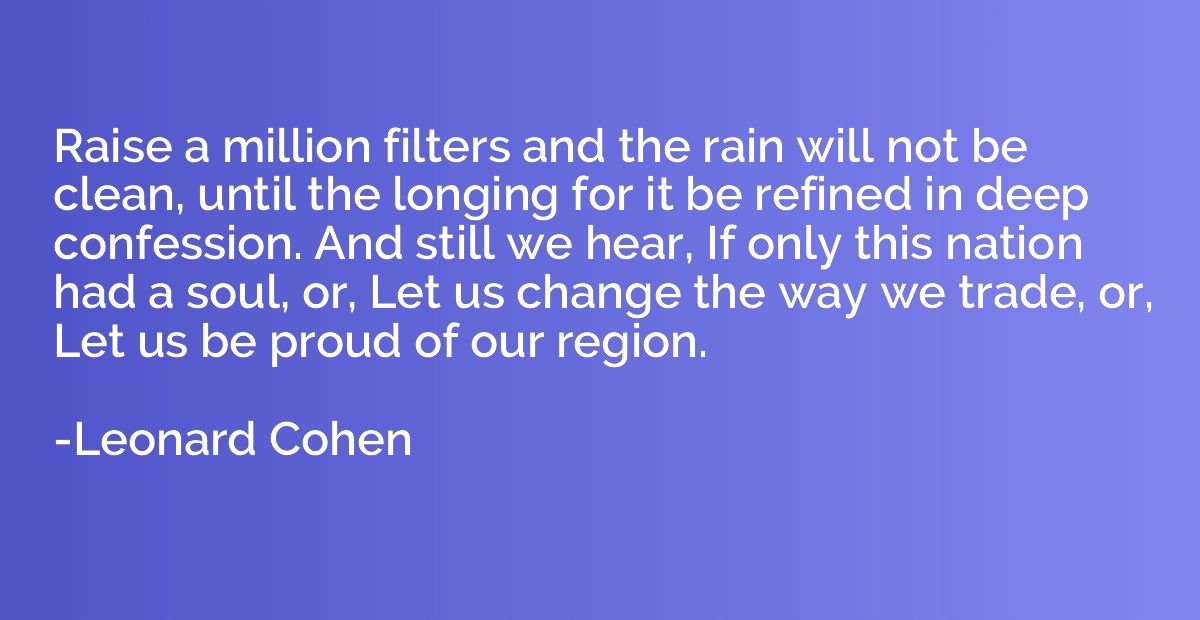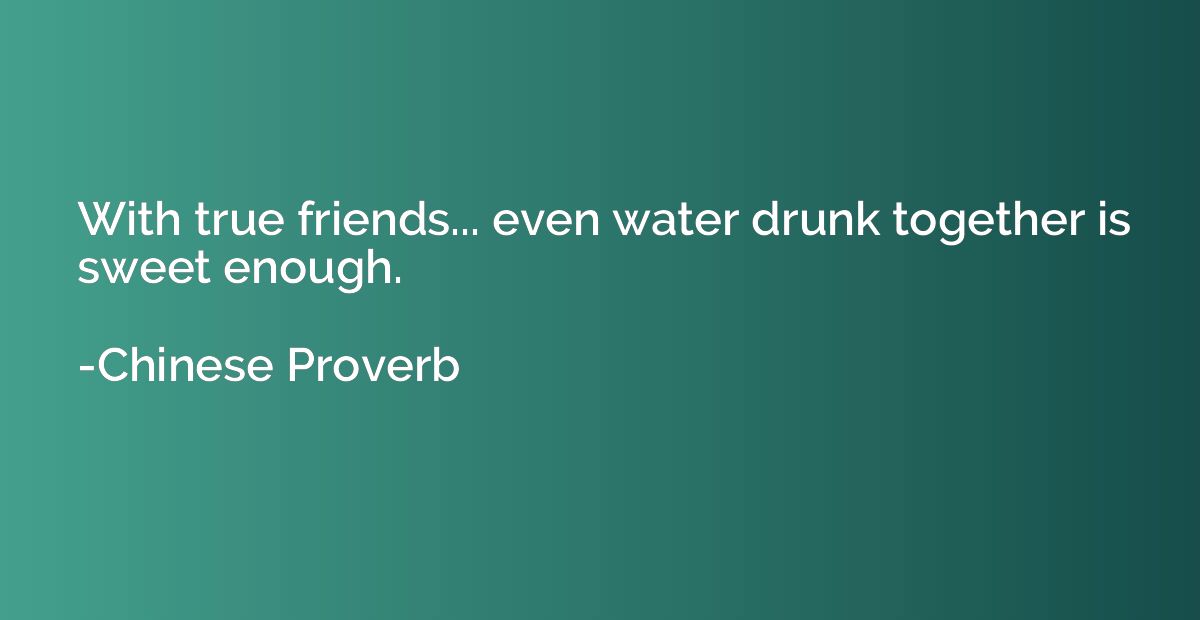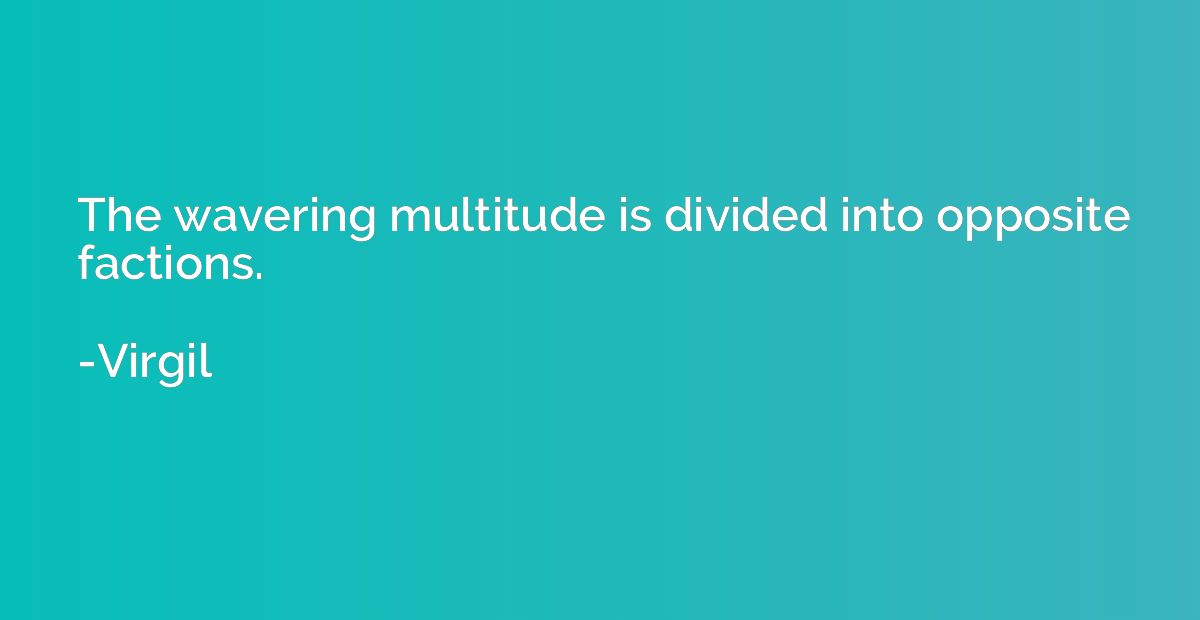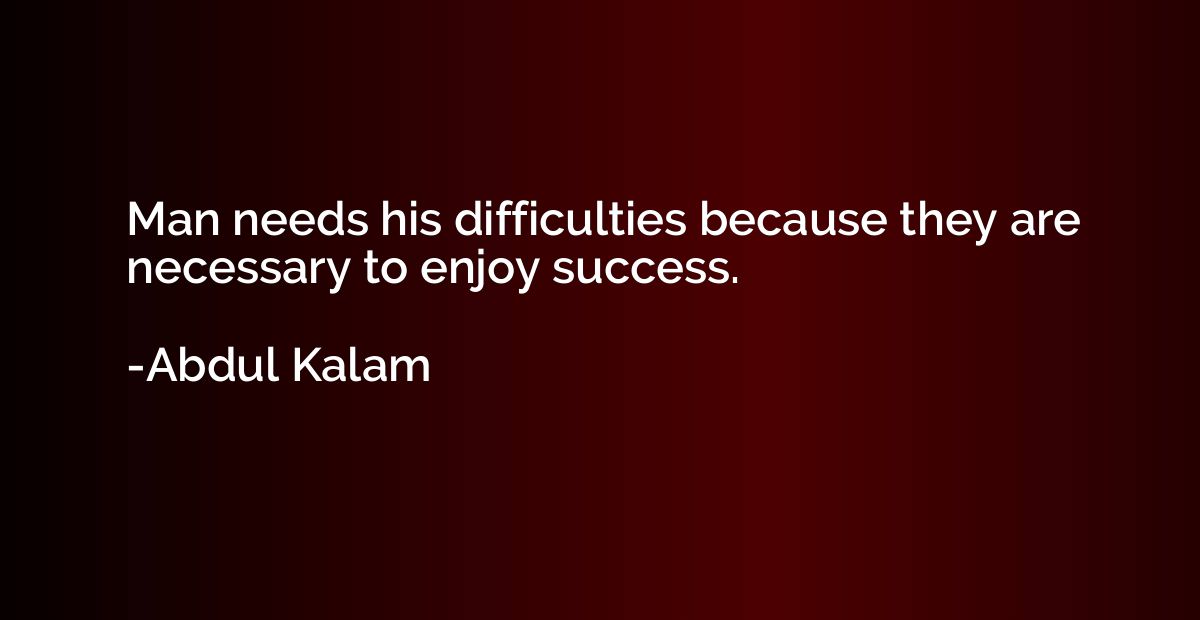Quote by Arthur M. Schlesinger, Jr., lect
The mystic prophets of the absolute cannot save us. Sustained by our history and traditions, we must save ourselves, at whatever risk of heresy or blasphemy. We can find solace in the memorable representation of the human struggle against the absolute in the finest scene in the greatest of American novels. I refer of course to the scene when Huckleberry Finn decides that the ''plain hand of Providence'' requires him to tell Miss Watson where her runaway slave Jim is to be found. Huck writes his letter of betrayal to Miss Watson and feels ''all washed clean of sin for the first time I had ever felt so in my life, and I knowed I could pray now.'' He sits there for a while thinking ''how good it was all this happened so, and how near I come to being lost and going to hell.''Then Huck begins to think about Jim and the rush of the great river and the talking and the singing and the laughing and friendship. ''Then I happened to look around and see that paper. . . . I took it up, and held it in my hand. I was a-trembling because I'd got to decide, forever, betwixt two things, and I knowed it. I studied a minute, sort of holding my breath, and then says to myself: 'All right, then, I'll go to hell' - and tore it up.''
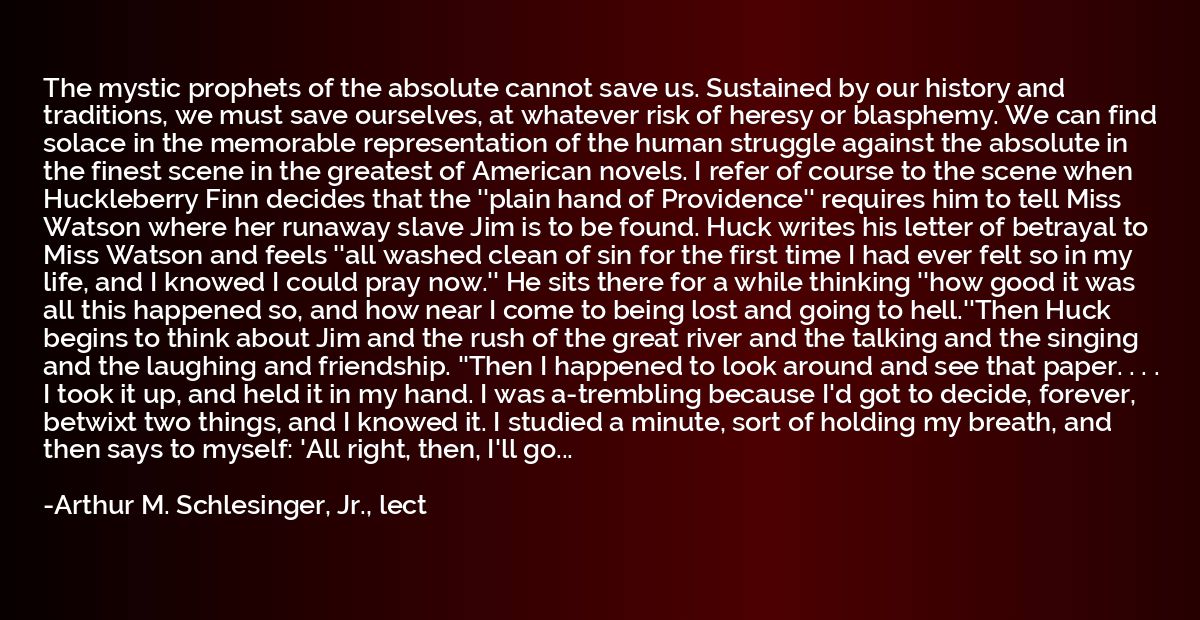
Summary
This quote emphasizes the idea that individuals cannot rely solely on mystical or religious figures to save them. Instead, people must take responsibility for their actions and make difficult decisions, even if they go against established norms or beliefs. The example given from "Huckleberry Finn" illustrates this point when Huck Finn, faced with the moral dilemma of betraying a runaway slave or following his conscience, ultimately chooses to follow his own sense of justice, even if it means going against societal expectations and risking eternal damnation. This shows the importance of personal determination and critical thinking in navigating one's path, rather than relying on external powers or authorities.



